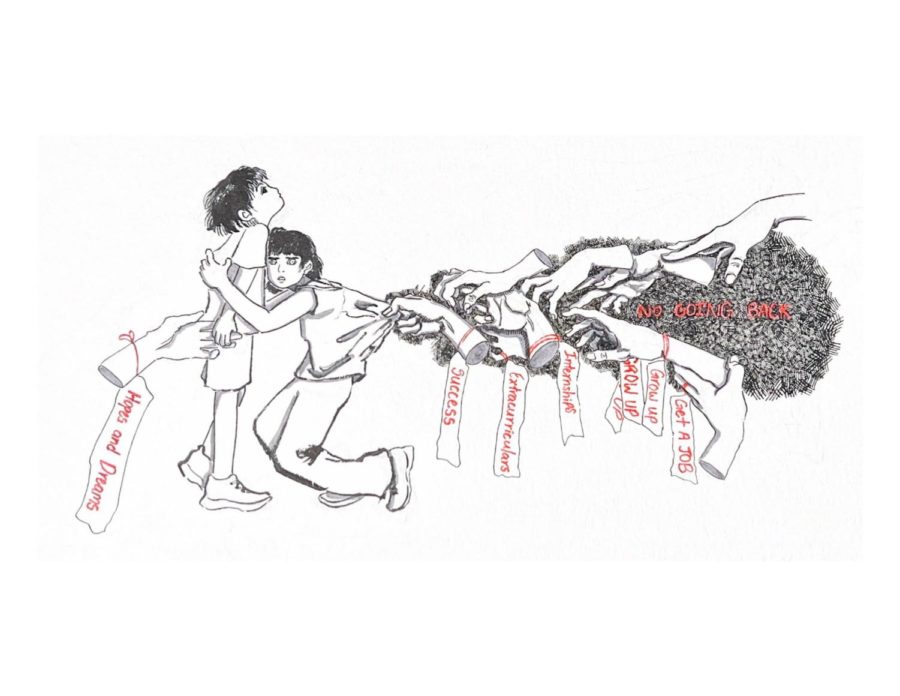Aaron Katsimpalis’s article, published earlier this week, critiqued Provost Daniel Diermeier’s behavior during an O-Week campus life meeting, specifically with regard to jokes that he made about the Trump administration. Katsimpalis went on to claim such jests suppress formal discourse and silence conservatives; he asserts that we must encourage tolerance and foster “intellectual diversity” to have an informed and productive discussion about controversial issues.
Discussion, discussion, discussion. Don’t get me wrong, I love discussion as much as the next UChicago student. I come from the heart of California, where hippies hold hands, and the skies are as blue as our voting patterns. Our school newsletter would actively seek out snippets from students with conservative opinions to add diversity to our stories, fearing that our predominantly liberal staff had inadvertently suppressed marginalized ideas. While I’m no stranger to the dangers of a one-sided conversation, there’s a fine line between preaching tolerance and being squashed by the very opposition we seek to foster.
I understand the fact that the column attempts to start a conversation. But there comes a point where even giving certain ideas a platform not only validates their opinion but also seeks to harm freedom of thought everywhere. In fact, 20th-century philosopher Karl Popper has called this the “paradox of tolerance,” an idea first described in his 1945 book The Open Society and Its Enemies:
“As long as we can counter [the intolerant] by rational argument and keep them in check by public opinion, suppression would certainly be unwise. But we should claim the right to suppress [intolerant ideology] if necessary even by force; for it may easily turn out that they are not prepared to meet us on the level of rational argument…. We should therefore claim, in the name of tolerance, the right not to tolerate the intolerant.”
Several prominent figures in the modern debate for “free speech” clearly embody Popper’s idea of intolerable intolerance. For example, President Donald Trump has supported “opening up libel laws” to limit freedom of the press, while Trump’s former chief strategist Steve Bannon has claimed that limiting African-American voting access would “not [be] such a bad thing.” If we encourage these views for the sake of equal discussion, will they really continue to support freedom of expression for everyone?
Furthermore, any conservative still offended or stifled by Diermeier’s joke ought to be aware of the University's many outlets for open discourse; for example, they could write an op-ed. The University espouses rational thought and dialogue and allows students to express their opinions. Katsimpalis cites Richard Spencer (A.M. ’03) as an example of “‘closet conservatives’ who proceed with unchallenged ideas that may be fundamentally wrong, but that later gain a platform with the general public,” but this statement is decidedly untrue. A simple search into Spencer’s history shows that he credits the University of Chicago for his “intellectual flowering.” In fact, he became an assistant editor at The American Conservative to further his ideology soon after graduation.
The real problem here is that a vortex of extremely dangerous right-wing thought is brewing in America, and liberal thought is divided over intraparty squabbles, including how to interact with and understand their opposition. The column mentions it itself—do the people who call you a “libtard” after the election really want to have a thoughtful discussion about the issues? While liberals argue over how to best foster conversations, our opposition actively hacks away at vital policies such as those on climate change reform, women’s rights, and health care legislation.
I’m sick and tired of having to hear the opinions of Nazis and nationalists on the grounds of “free speech,” especially when the right already controls the majority in every branch of our federal government. It’s time for liberals to stop arguing about adequate conservative representation, unite under a common front, and actively fight against figures and policies that seek to undermine the fundamental rights and freedoms our country is supposed to guarantee to all of its citizens.
Krishna Sunder is a first-year in the College.








